Trials under the open sky
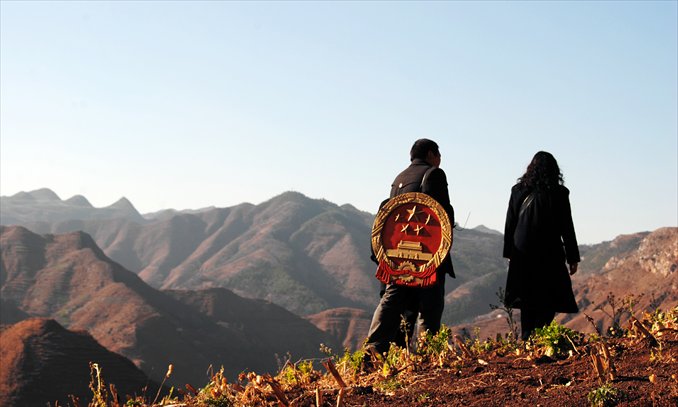
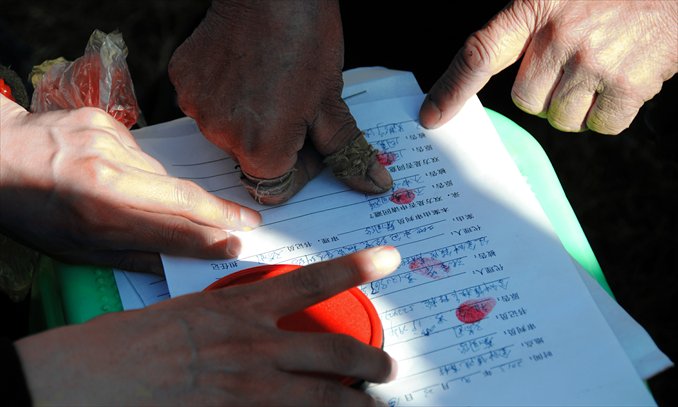
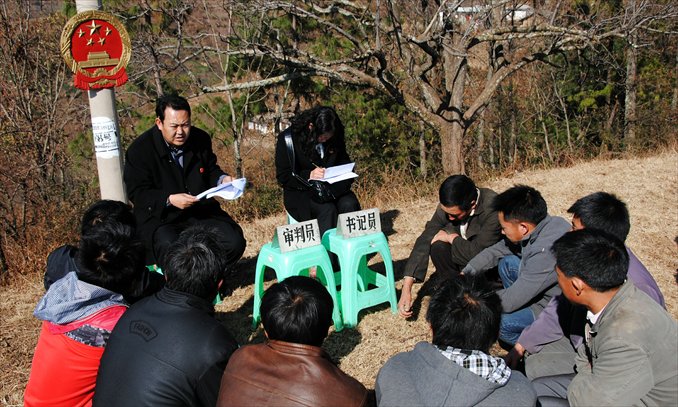
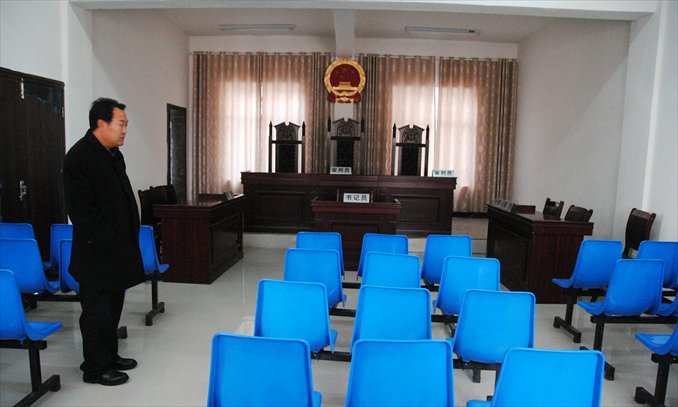
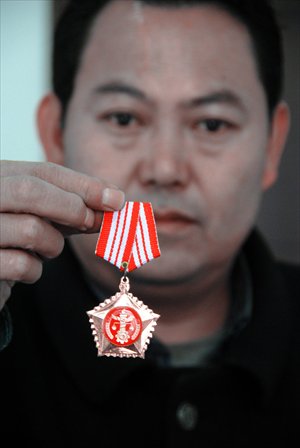
A national emblem, symbolizing judicial power, fixed atop a pole, a judge and a clerk are in front of a crowd of dozens of villagers sitting on the ground. A land dispute trial opens in a village in Weining, a county with ethnic Yi, Hui and Miao minorities in western Guizhou Province.
Since 2010, in order to save remote residents from the trouble of taking a long and arduous journey to the court in the county's Jinzhong township, the authorities have adopted "moving trials" that have helped deal with more than 360 various cases.
The court's four workers have traveled over 10,000 kilometers. Much of this was done on foot due to the remoteness of certain villages. They have faced risks such as accidents on old roads. The forehead of Cai Guojun, the court's director, sports a 5-centimeter scar, left by a car accident.
"All cases will be addressed, no matter whether they are small or big. All requests will be granted, no matter how far or how high the place is," has become the creed of this special team of judicial workers.
But "moving courthouses" are not new in China. As early as the 1980s, court workers in Weishan county began on-site trials among the fishermen of Weishan Lake, China's sixth largest freshwater lake in Shandong Province.
To better help solve disputes among the nearly 100,000 fishermen, the Weishan court in 2009 purchased a boat, refitted it as a court and named it "Justice," ending its 20-year history of renting wooden boats to hold trials on the water.
Now, mainly due to the rugged landscapes and scattered population distribution in remote regions, moving courthouses have appeared across the country, on water, grasslands and in mountains.
In 2006, the movie Courthouse on Horseback told the tale of three court workers, traveling with one horse and carrying a national emblem to solve cases between villages in ethnic regions of Yunnan Province. This helped put these roaming judicial workers on the map.
The film also won the Best Feature Film Award in the Horizon Section of the 63rd Venice International Film Festival.
"Through sights of a moving courthouse and their fates, I tried to display the current state of the country's legal system, the problems of nationality, culture, environment ..." the film's director Liu Jie said.
"Here, the current legal system moves ahead slowly just like the national emblem on horseback along bumpy roads," Liu noted.